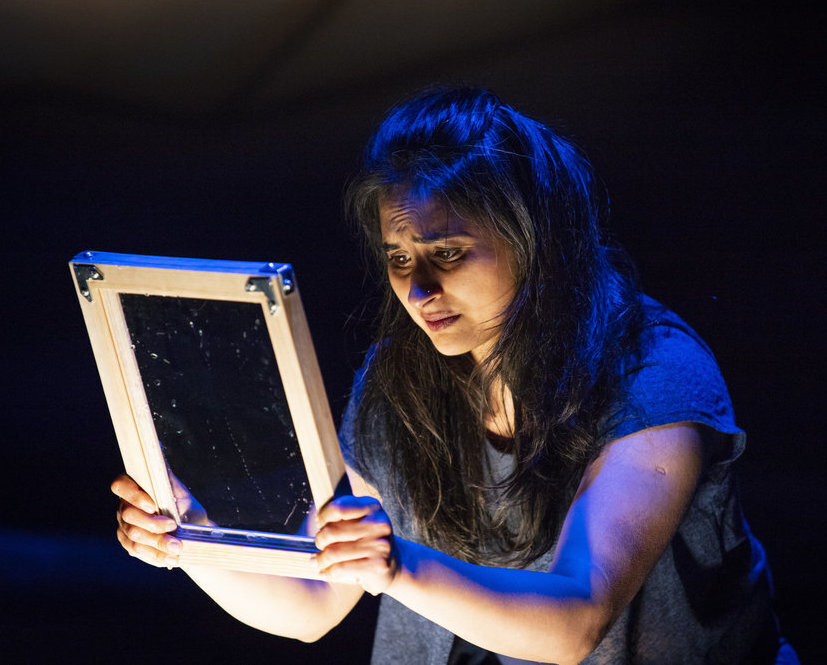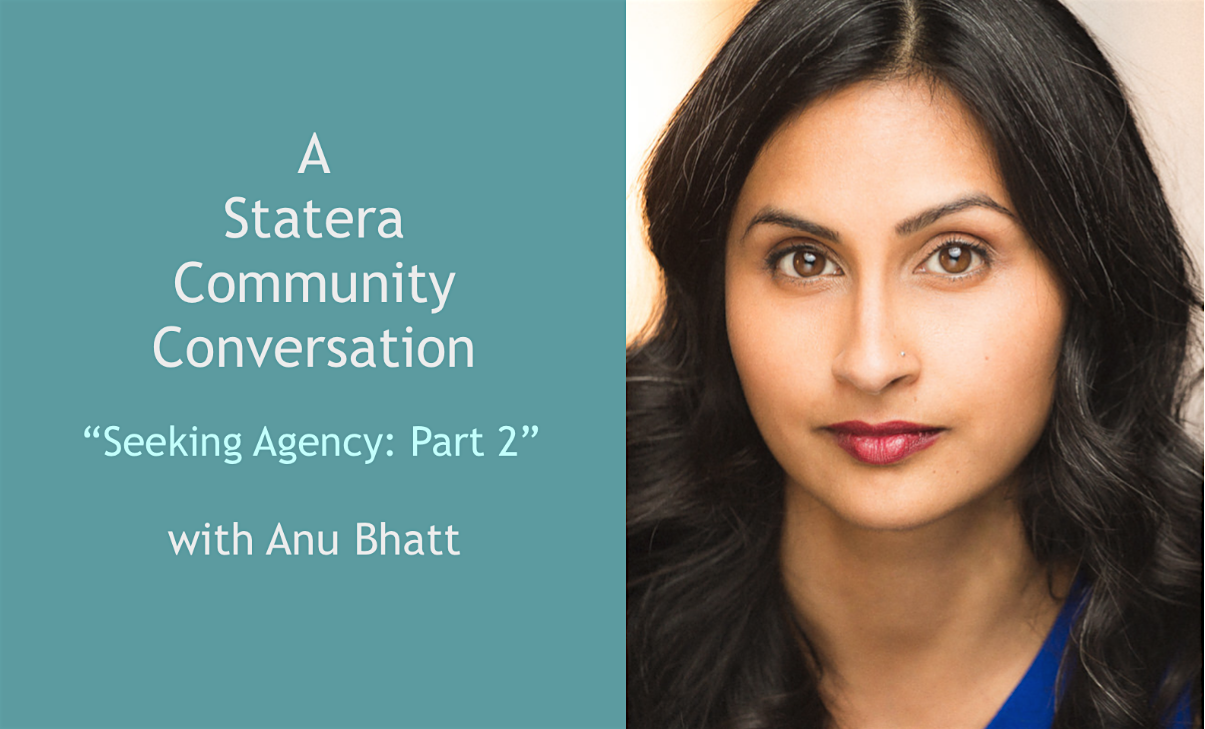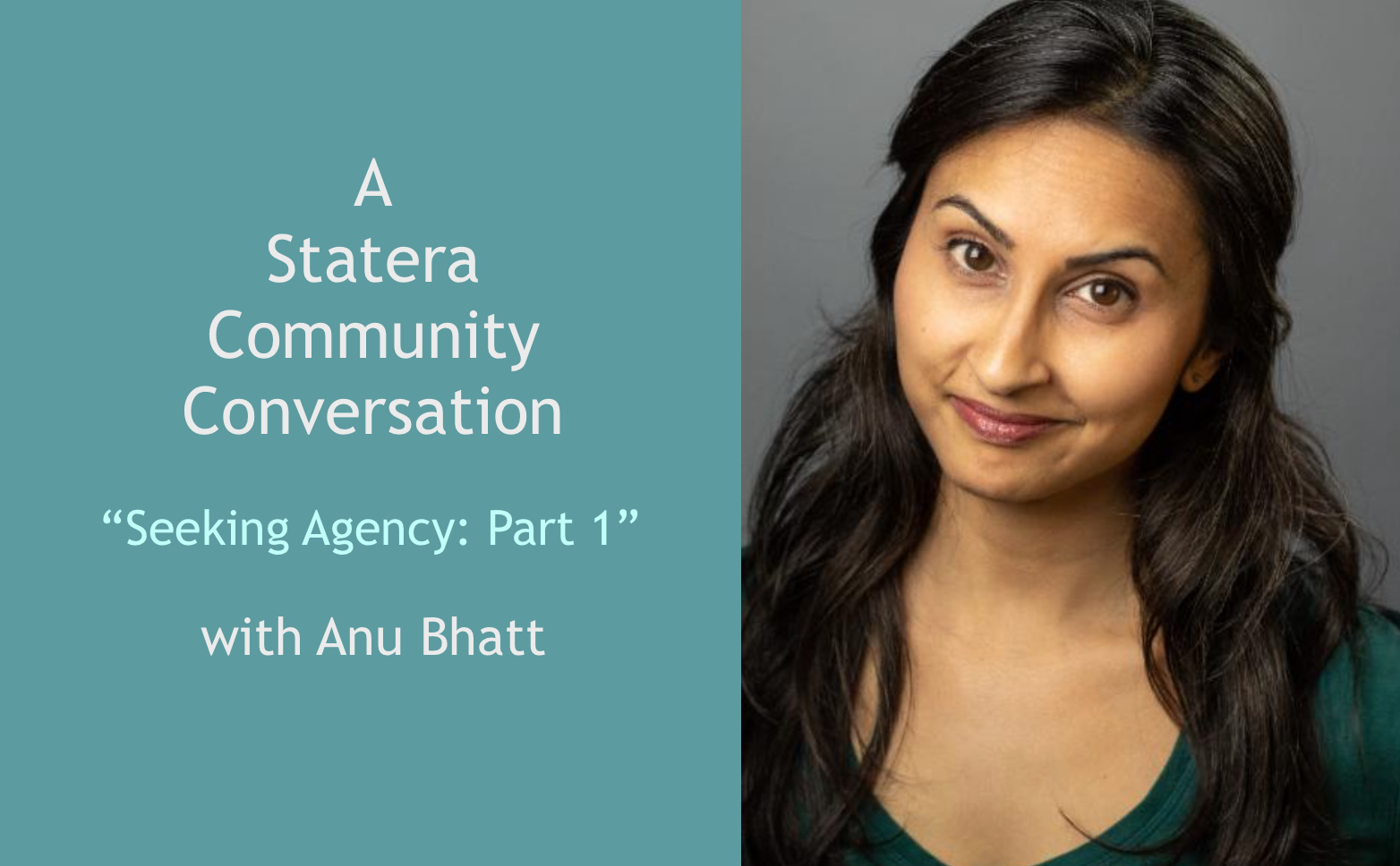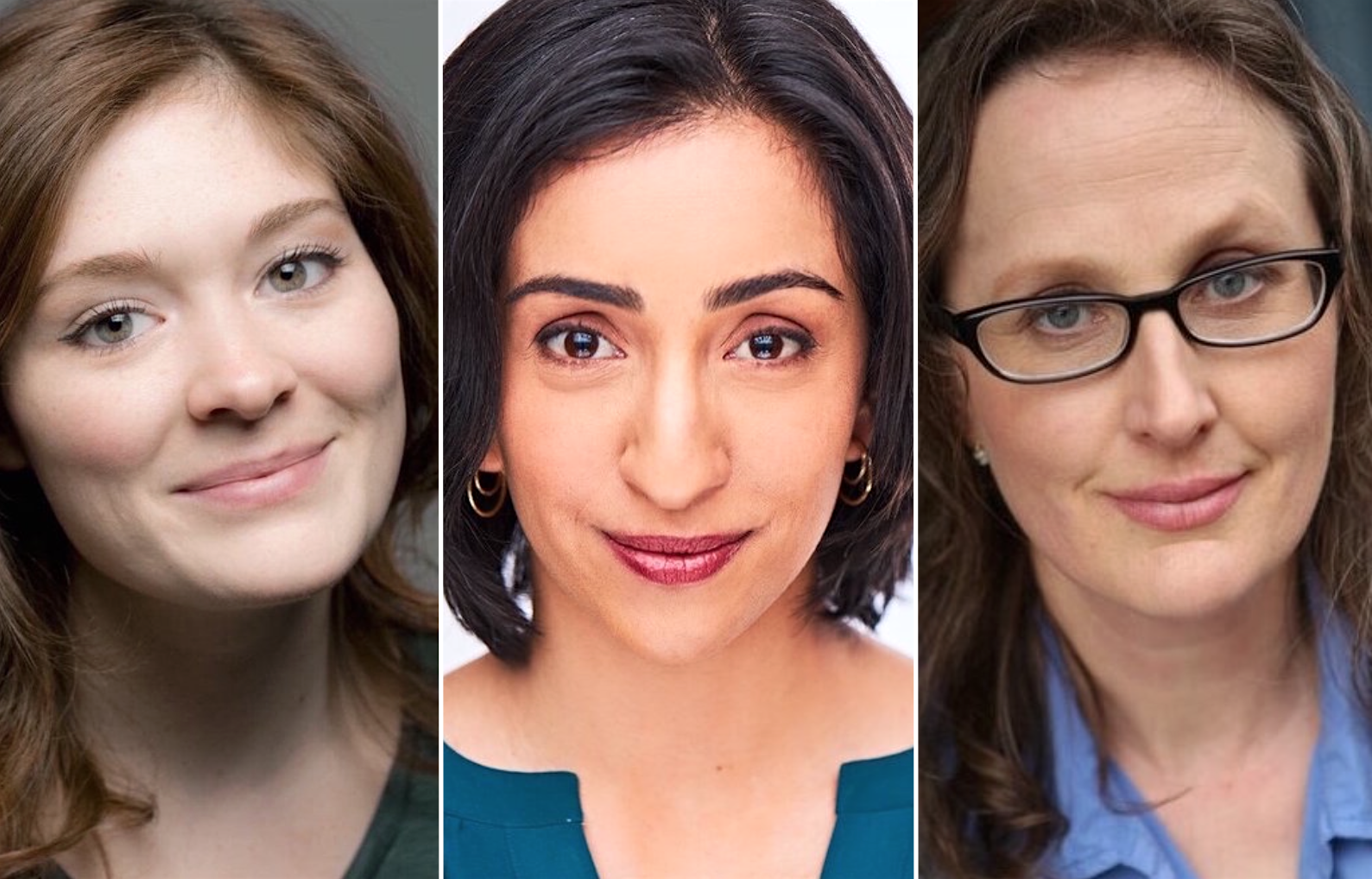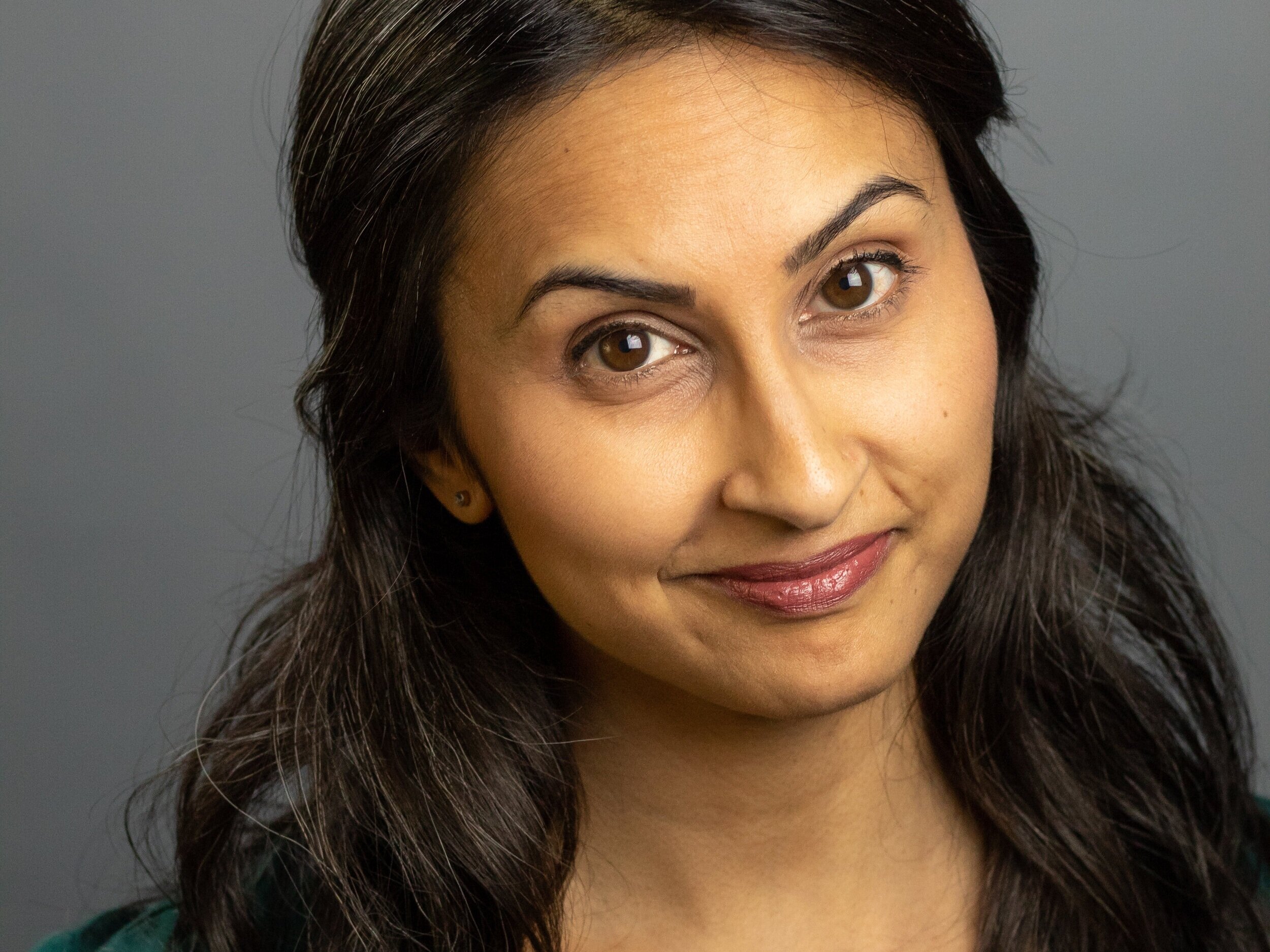Statera: Tell us about your work in the arts.
Erika Vetter Fontana (she/her): I spent six years in NYC acting and working as an actor’s adjunct for the NYPD and Riker’s Island Crisis Intervention Training programs teaching nonviolent deescalation. In 2018 I moved to Seattle to get my MFA in the Professional Actor Training Program at the University of Washington and am currently in my second year, where I also serve as the School of Drama Senator in the Graduate and Professional Student Senate. I have also been the StateraArts Social Media Director since 2015.
Vahishta Vafadari (she/her): I started out working as an actor in the theater. But in the last few years, I've worked both onstage and off, and dabbled in some film and tv. I'm not only an actor, but also a dialect designer, teaching artist, audition coach and have dabbled in movement and fight choreography.
Rebecca O’Neil (she/her): I am an actor and now I am also the founder of a start-up theatre company called The Shattered Glass Project, whose mission is to amplify the voices of women+ theatre artists.
Statera: Can you share about your journey to the Seattle arts scene?
Erika: Grad school brought me here. The Seattle arts scene is full of UW faculty and alumni in all fields, and the arts community out here is involved and welcoming. It made for an easy transition from NYC.
Vahishta: I'm pretty new to Seattle! I've only been in the city 9 months- but I love it. I'm coming from Chicago, which is a very different market. I'm still learning, but so far people have been incredibly generous and willing to share their knowledge and experiences with me. In the few months I've been here I've been lucky enough to do some auditioning, work on a great immersive play with Dacha Theater and do some dialect coaching.
Rebecca: I moved to Seattle in 2000, after 10 years in Portland (I’m an Oregon native), where I was the artistic director of Portland Actors Ensemble, an actor, a grantwriter, and the support staff for a college arts department, before beginning a somewhat surprising career in legal nonprofit and education administration. (Basically stage management, but with lawyers.) I continued to act as a side gig, but in 2017 I discovered the MFA Arts Leadership program at Seattle University, and took advantage of my employee benefit of free tuition for graduate programs to enroll. I developed The Shattered Glass Project from my classwork, which included a healthy dose of social justice training. I have a wonderful spouse who is willing to support me while TSGP is still in startup mode, so I’ve jumped off the deep end into full-time work as a founder to develop programming, write grants, raise funds, and make theatre.
Statera: What is your own most memorable mentorship experience?
Erika: I got involved in StateraArts because of Shelly Gaza, who co-founded it and serves on the board. She was my professor in undergrad, and would always reach out about opportunities she thought I’d be a good fit for. She called me in summer 2015 to encourage me to come out to Cedar City for Statera’s inaugural conference. That woman has changed my life in only the most positive ways. She helped me get into UW and introduced me to the StateraArts family, both of which have been some of my most fruitful artistic endeavors.
Vahishta: I had a really lovely mentee through the Statera Mentorship Program in Chicago. It was my second time being a part of the program and my first time as a mentor. We had a wonderful artist date where we went to an indie film screening and later I introduced her to the writer and lead actor in the film. I was excited to get to create a connection between my mentee another artist in the community who could relate to her specifically as a black female creative.
Rebecca: I think my most memorable mentorship experience was the realization that I never had one at any point in my early career. I interviewed a young woman as part of a research project I was conducting, who talked to me about how her mentor would meet with her regularly; ask her questions about what she wanted to do with her career; encourage her to take this or that step and talk about what decisions she (the mentor) had made and why; and generally show this young woman how to move forward with a career in theatre. I never once had a professional role model talk to me or demonstrate any interest in how I might have a successful career in the theatre, and in listening to this young woman talk, I realized how sad that was. I resolved to help other women, of all ages and theatre practice areas, to become mentors and mentees for one another.
Statera: How did you become connected to Statera Mentorship?
Erika: Mentorship is such a HUGE part of the work we are doing at StateraArts, and Minita and Erika have done such a beautiful job building a mentorship program that reflects our mission. I promised myself I’d beg them to let me take part in coordinating if a chapter opened in Seattle.
Vahishta: I had a very good friend, Anu Bhatt, tell me about her experience with the program and it got me excited. I was looking for a way to continue growing and learning after I finished my masters program and working with Statera as a mentee was perfect. It gave me support and a great mentor to plan with and bounce ideas off of.
Rebecca: My MFA classmate Cristin Hubbard Miller introduced me to StateraArts, and encouraged me to attend the first conference I could get to. Thank you Cristin!
Statera: What do you see as the greatest need and/or the most common need for mentorship relationships?
Erika: This industry is constantly changing and, at many times, completely daunting. It can overwhelm anyone trying to navigate it, and it can be incredibly disheartening to do it alone. Mentorship builds community, and community creates opportunity, and opportunity opens doors to other opportunities until one day you wake up and discover you’ve built yourself a career. If your ambition is the seed and the industry is the soil, mentorship is the sunlight and the water that helps you grow.
Vahishta: Communication. We all have so many questions and it can be difficult to know who to ask. Statera takes the anxiety and mystery out of it. That's what the mentor is for. It gives you a place you can always go with your questions.
Rebecca: Since most work in theatre is acquired through who you know, mentorship is a way for less experienced professionals to develop valuable relationships as well as to gain career guidance. It is also a way for more experienced professionals to develop valuable relationships and keep their own perspective fresh, as well as giving back to the community. By choosing to mentor people who may not have the same access, a more experienced professional can help diversify the community simply by being supportive and encouraging. Gaining sound advice and direction is almost secondary to the emotional support a mentor can provide to an emerging artist.
Statera: Talk to us about your leadership style and why you're called to volunteer in this capacity for your community.
Erika: I think the best leaders are the ones who lead with a learner’s mentality: an open mind and heart, a desire to collaborate rather than to dictate, and the knowledge that inclusivity can and will always improve upon the work being done. I think promoting the cultivation of balance to counteract the burnout culture is also important right now.
Vahishta: I love sharing information, and being a teacher. Bringing people together who can help each other grow makes my heart sing. So I think that's why I'm here.
Rebecca: There’s nothing I like better than the “ah-ha!” moment a cast arrives at when something actually comes together. I think of my leadership style as collaborative and encouraging, and that “ah-ha!” moment is why; the sheer joy of getting to the absolute right thing together. I’m drawn to volunteering for Statera Mentorship because I have a firm belief in fairness. Putting people together in relationships is one way to arrive at a more just, more diverse art form that tells better stories in more diverse ways. Mentorship is More!
Statera: Okay, now it's time to AMPLIFY. What recent personal projects or upcoming projects are you excited about? Any links or PR you want to share with us?
Erika: I’ll be in The Best of Everything at UW, a feminist comedy led by a FIERCE woman and celebrated Seattle director Valerie Curtis-Newton! It runs Feb. 1-16. And I’ll be playing Sally Bowles in Cabaret (also at UW) directed by another well-loved Seattle director Tim Bond, April 25-May 17. Come say hello!
Vahishta: I'm currently teaching and acting and very excited to get to know the first Seattle class!
Rebecca: The Shattered Glass Project is bringing in our first cohort of our incubator program for women+ directors and playwrights, who will use feminist co-mentoring principles to work with and teach one another. And we will produce our first mainstage production at the 18th & Union space in Seattle’s Central District, a production of Much Ado About Nothing directed by Francie Mylet and running May 29-June 14, 2020. I’m playing Beatrice (yes, a 53 year old Beatrice!) Check out our website for details!
_format-1500w.png)


